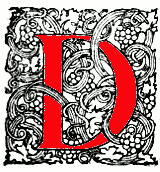
oes matter really matter? While thing theory has been present since the 1990s, its prescience has materialized in various permutations: new materialism (e.g., Barad 2007; Bennett 2010; and Alaimo 2010), object-oriented ontology (e.g., Latour 2005; MOrton 2007, 2013; Bryant 2011), and posthumanism (e.g., Haraway 2008; Opperman 2016). The line of philosophical thought runs deep derived from classical philosophers (e.g, Democritus, Aristotle, and Lucretius) to pre-Enlightenment thinkers (e.g, Hobbes 1668; Spinoza 1677) to historical materialism (e.g, Engels 1840; Marx 1848).
As many have argued from varying perspectives, matter does really matter, especially nowadays in literary studies by focusing not so much on subject-object relations, but rather the primacy of the object, as a matter-based substance, and its integral place within textual material: rocks and stones and trees (Wordsworth 1798; 1815); a locket (M.Shelley 1818, 1831); marble statues (Keats 1816); an assemblage (e.g., boy, poison, fox, etc) (Child 1829); a "transparent eyeball" (Emerson 1836); a pine tree (Schoolcraft 1838); a riven oak tree (C. Brontë 1847); a windowsill (E. Brontë 1847); a hummingbird (S. Cooper 1850); coal or a loom (Dickens 1851); beans (Thoreau 1854); a clock or well (Braddon 1862); a painting (Wilde 1890).
What is the significance of a subject-object? What is the status of the human in a posthuman reality? What is the value of reading an object across textual material transnationally or transhistorically? How might objects provide access to issues pertaining to exclusion, dominance, or subordination that might otherwise remain invisible? The "Matter Really Matters" panel invites paper proposals for 15-20 minute papers (8-10 pages) that engage with literary and non-literary textual material across the nineteenth century from various discursive voices.
For consideration, please submit an abstract (300 word limit) and biography (100 word limit). The first link is to the NeMLA online submission system. An account will need to be created with a user name and password: https://www.cfplist.com/nemla/Home/Login. The next link is to the panel portal to submit the title, abstract, biography, and any media needs: https://www.cfplist.com/nemla/Home/S/20405. The deadline for online submissions will be September 30, 2023.
If you have any questions, feel free to contact the panel organizer Dewey W. Hall, California State Polytecnic University, Pomona at dwhall@cpp.edu.
Last modified 24 June 2023